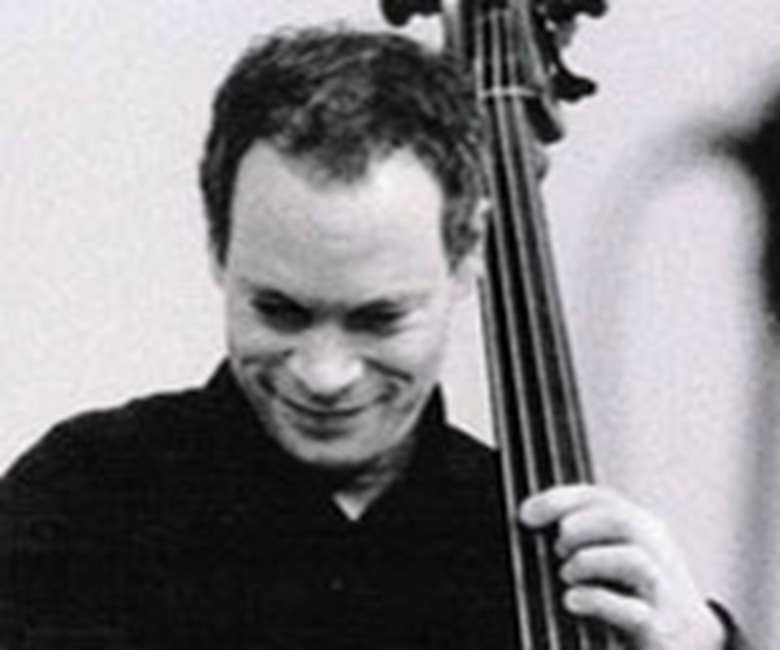Alec Dankworth - Double Bass
Tuesday, March 20, 2007
Alec Dankworth’s journey to the nether regions of the bass clef began in 1974 when “the bass player left the band I was playing in.” Dankworth had started out on the guitar, but because his dad John, the alto saxophonist and composer, “had this very strange bass lying around the house” he felt almost obliged to pick it up and lay down the lower line.

“Soon afterwards I got myself a Fender Mustang”, he says, “closely
followed by an Aria Pro 2 with a long scale neck". But it was a bit of a shock “finding that I had to stretch my hands a bit more.” In 1977, he took up a place at the Berklee College of Music, where he played all sorts of electric basses.
“It was like guitar world. Over the year and a half I was there, I got to try out a new instrument almost every two weeks”. The one that sticks in his mind more than any other is the Schecter. “This instrument could be bought as a modular system. You select the neck, the type of body and the pick ups. But with the exotic woods, they’re not cheap.” Being at Berklee meant that he was also spending a lot of his time listening to the acoustic bass.
“I was enjoying the natural sonority of the instrument. So when I returned to the UK in 1980, one of the first things I did was to pick up a copy of Exchange And Mart and look through the back pages to see if I could find an acoustic bass that was being sold privately”. Dankworth was fortunate to pick up a Mittenwald 1870 German-made factory bass for the princely sum of £400. “It’s a small 3/4 short scale bass”, he says. “It has a very distinctive sound all of its own. It’s not a deep bass with a lot of bottom end and it may not be as deep and resonant as other basses. But it has got an attack and centre that I like for jazz playing.”
Twenty-five years later and Dankworth still gigs with the Mittenwald, as he has never been able to find another instrument that produces the same unique sonic qualities. “When I’m in New York I go to [string instrument repairer] David Gage’s shop. I’ve played on basses that cost £25,000, thinking ‘now I’ll find one that I like’. But the sound doesn’t necessarily relate to the price of the instrument – and then there’s always the antique value”. Dankworth’s search for, and experimentation with, the character and quality of sound never ceases. “I tried gut strings a little while ago, which I really liked. But my electric bass style fingering made things a bit tricky. It makes a warmer sound, but then again it limits the type of music you can play.”
So how does he amplify his acoustic instrument? “They still have a problem with acoustic bass amplifiication”, he says. “The pickups are not ideal. That’s something that I have experimented with over the years. At the moment I’m back to Underwood, having tried both the Fishman and the David Gage pick ups and mikes.”
For the future Dankworth has been contemplating purchasing a travel bass. “The difficulties of flying with a big instrument are getting more problematic these days. I’ve tried ‘stick’ basses, but the sound is too much like an electric instrument. I like the idea of something that David Gage has come out with recently. It’s called the ‘Czech travel’ bass. It’s a normal bass with the bottom bit below the bridge removed, so there’s a lot of acoustic chamber still there. There’s also a bass that’s half as deep as a normal bass – sort of cello size. I shall be looking at that, too.”